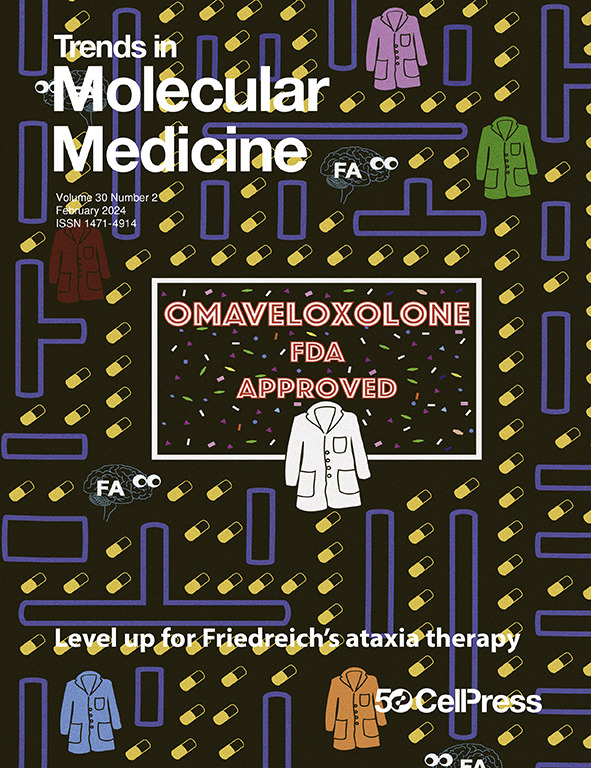假尿嘧啶修饰RNA的双重免疫逃避。
IF 13.8
1区 医学
Q1 BIOCHEMISTRY & MOLECULAR BIOLOGY
Trends in molecular medicine
Pub Date : 2025-10-01
Epub Date: 2025-09-10
DOI:10.1016/j.molmed.2025.08.007
引用次数: 0
摘要
假尿嘧啶(Ψ)及其衍生物n1 -甲基假尿嘧啶(m1Ψ)可以抑制基于rna的治疗方法的不良免疫原性。然而,控制这种免疫逃避的分子机制仍然难以捉摸。在最近的一篇文章中,b本文章由计算机程序翻译,如有差异,请以英文原文为准。
Two-pronged immune evasion of pseudouridine-modified RNA.
It is well established that pseudouridine (Ψ) and its derivative N1-methylpseudouridine (m1Ψ) suppress unwanted immunogenicity of RNA-based therapeutics. However, molecular mechanisms governing such immune evasion remain elusive. In a recent article, Bérouti, Wagner, and colleagues show that Ψ impairs the processing of Toll-like receptor (TLR)-agonistic ligands and hinders TLR activation.
求助全文
通过发布文献求助,成功后即可免费获取论文全文。
去求助
来源期刊

Trends in molecular medicine
医学-生化与分子生物学
CiteScore
24.60
自引率
0.00%
发文量
142
审稿时长
6-12 weeks
期刊介绍:
Trends in Molecular Medicine (TMM) aims to offer concise and contextualized perspectives on the latest research advancing biomedical science toward better diagnosis, treatment, and prevention of human diseases. It focuses on research at the intersection of basic biology and clinical research, covering new concepts in human biology and pathology with clear implications for diagnostics and therapy. TMM reviews bridge the gap between bench and bedside, discussing research from preclinical studies to patient-enrolled trials. The major themes include disease mechanisms, tools and technologies, diagnostics, and therapeutics, with a preference for articles relevant to multiple themes. TMM serves as a platform for discussion, pushing traditional boundaries and fostering collaboration between scientists and clinicians. The journal seeks to publish provocative and authoritative articles that are also accessible to a broad audience, inspiring new directions in molecular medicine to enhance human health.
 求助内容:
求助内容: 应助结果提醒方式:
应助结果提醒方式:


